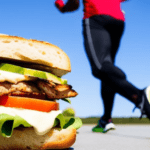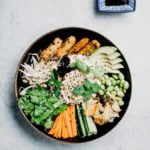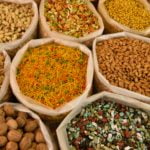Are you someone who enjoys crispy, charred food? Or do you believe that a little bit of charring is just fine? If so, it’s time to rethink your eating habits. Eating burned food can be dangerous and harmful to your health.
When food is cooked, it can release harmful chemicals such as acrylamide, polycyclic aromatic hydrocarbons (PAHs), and heterocyclic amines (HCAs). These chemicals can form when food is exposed to high heat, especially during grilling, frying, or roasting.
Acrylamide, for example, is a chemical that forms when carbohydrates are heated to high temperatures, such as when potatoes are fried or roasted. Studies have shown that acrylamide can cause cancer in animals and is a potential carcinogen in humans. PAHs and HCAs, on the other hand, are formed when meat is cooked at high temperatures, and they have also been linked to cancer.
Not only do these chemicals pose a health risk, but eating burned food can also affect the taste and texture of your food. Burned food can have a bitter, unpleasant taste, and it can be difficult to digest.
So what can you do to reduce the risk of eating burned food? First, avoid cooking food at high temperatures for too long. Use a timer to keep track of your cooking time and make sure to follow recipes closely. If you’re grilling or roasting, keep an eye on the food and move it around to prevent charring.
You can also try alternative cooking methods, such as steaming or boiling, which don’t produce the same harmful chemicals. And if you do end up with burned food, it’s best to toss it out rather than trying to salvage it.
How about BBQ?
When it comes to BBQ, there are a few things to keep in mind to reduce the risk of consuming burned or charred food. First, make sure to clean the grill grates before cooking to remove any old bits of food or residue that could contribute to charring. Additionally, consider marinating or basting your meat with a sauce or oil to help keep it moist and reduce the risk of charring.
You can also adjust the temperature of your grill to help prevent charring. High heat can lead to more charring, so consider cooking at a lower temperature for longer periods of time to help evenly cook your food without burning it. Additionally, using a meat thermometer can help you ensure that your meat is fully cooked without being overcooked and charred.
Finally, if you do end up with some charred spots on your food, it’s best to cut them off before consuming the rest of the meat. Charred areas can contain potentially harmful compounds, so it’s best to err on the side of caution and remove them. By taking these steps, you can enjoy delicious BBQ without putting your health at risk.
While the occasional charred piece of food may not harm you, it’s important to be aware of the risks of eating burned food. By taking precautions and being mindful of how you cook your food, you can reduce the risk of exposure to harmful chemicals and enjoy your meals safely.
About Recipes and Food Topic
Find inspiration for your next meal with our collection of delicious recipes and food-related articles. From quick and easy weeknight dinners to gourmet desserts, we’ve got you covered.






